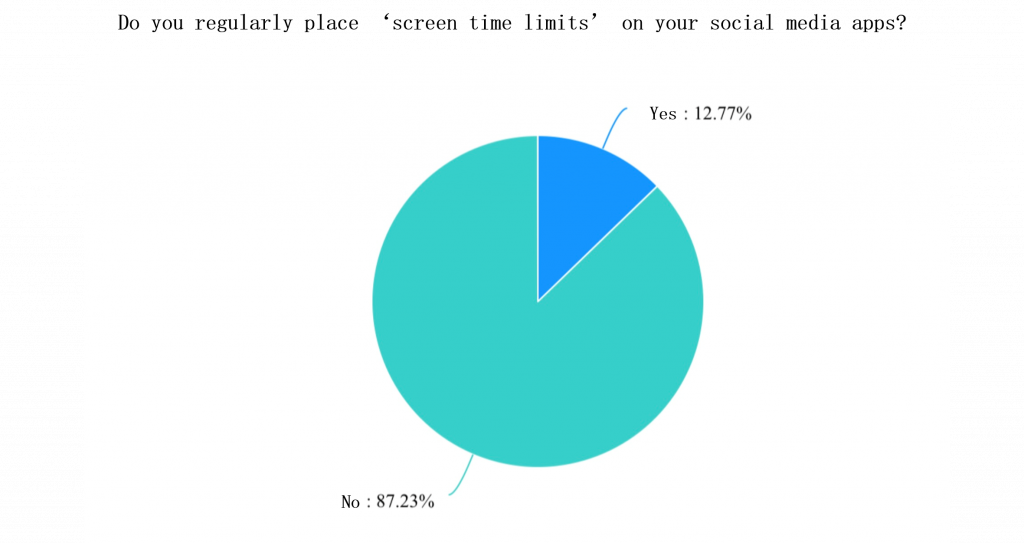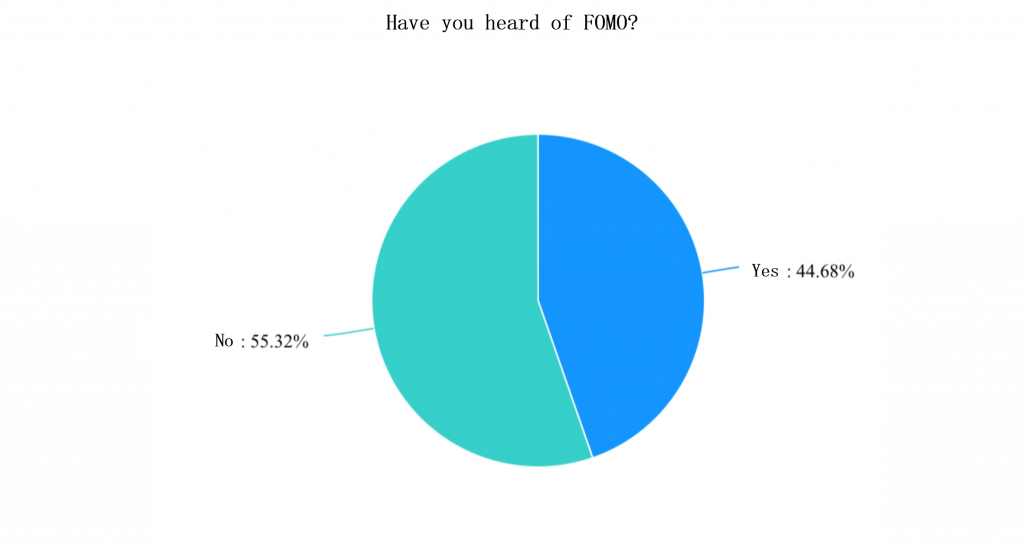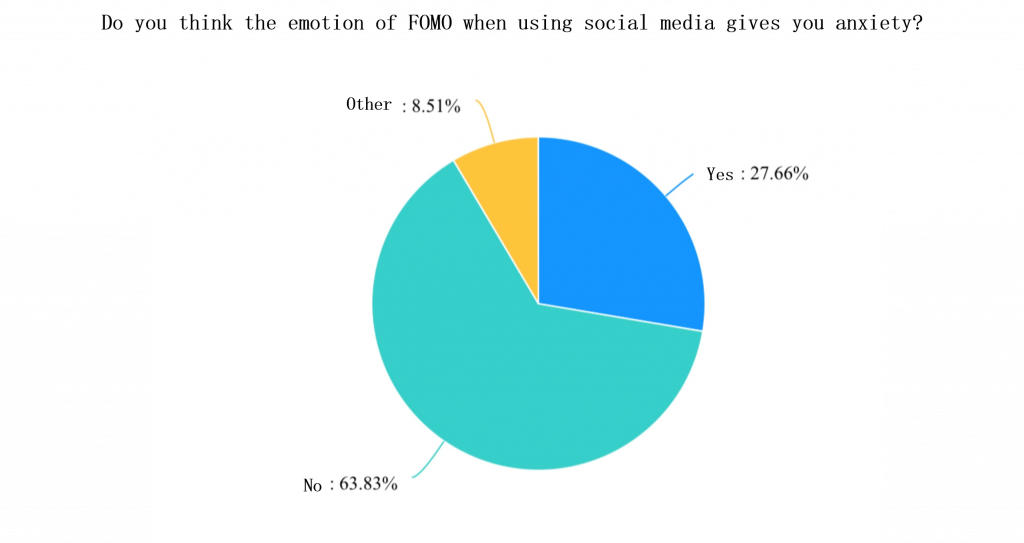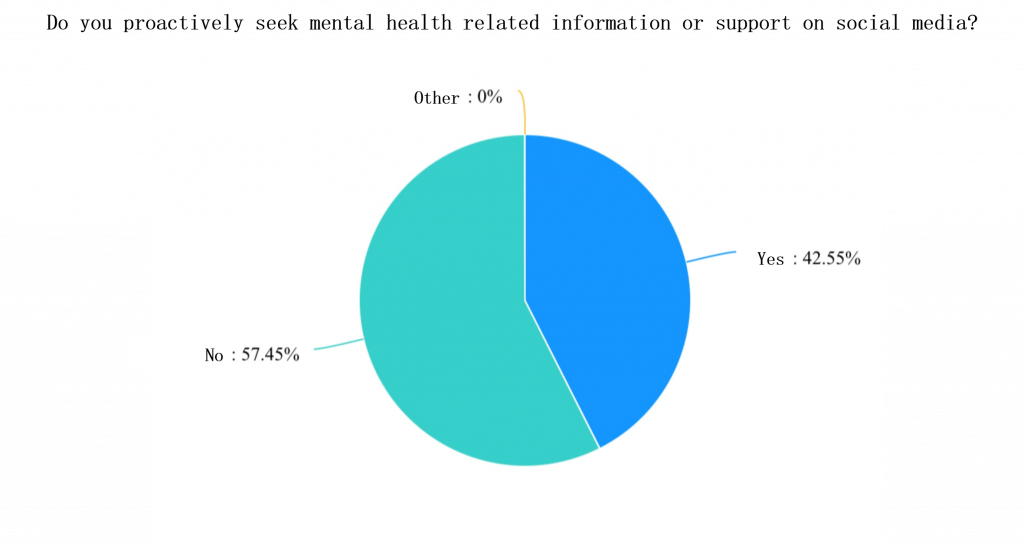I posted a questionnaire about FOMO to my friends and also on social medias for people to answer. The purpose of this questionnaire was to understand Gen-Z’s habits, preferences, and mental health impacts in social media use. By collecting information on Gen-Z’s length of social media use, preferred apps, content of interest, mental health impacts, and perceptions of FOMO, I attempted to paint an overall picture of social media use among contemporary youth. A total of around 120 people responded and the results are shown below:









It can be seen that the time spent using social media is mainly concentrated in two time periods, 4-6 hours and greater than 6 hours, both accounting for 31.25%. Xiaohongshu is the most frequently used Chinese social media by the respondents, and probably I would focus more attention on this software. Social media is mainly seen as a tool to provide a platform for making friends and communicating as well as to help keep up with current events and social dynamics, with relatively few believing that it makes them feel lonely or negatively affects their self-esteem and self-confidence. The majority of people felt that social media had more positive impacts, with fewer people choosing to place a ‘screen time’ limit on their social media. Slightly more people had heard of FOMO than hadn’t, but only 27.08% of them felt that the emotions of FOMO caused them anxiety when using social media, compared to 64.58% who said it didn’t. This is not quite what I had expected, so it made me question the need for me to research this topic: does the issue of FOMO matter to Gen-Z? The fact that a relatively large number of people are willing to use social media to seek mental health support suggests that social media may play a helpful role in the mental health field. Through this questionnaire I considered whether or not I wanted to change my research question and I derived two opposed new questions that I wasn’t sure if I wanted to pursue. They were how to use social media to help Gen-Z with their mental health? And how to help Gen-Z stay away from social media?